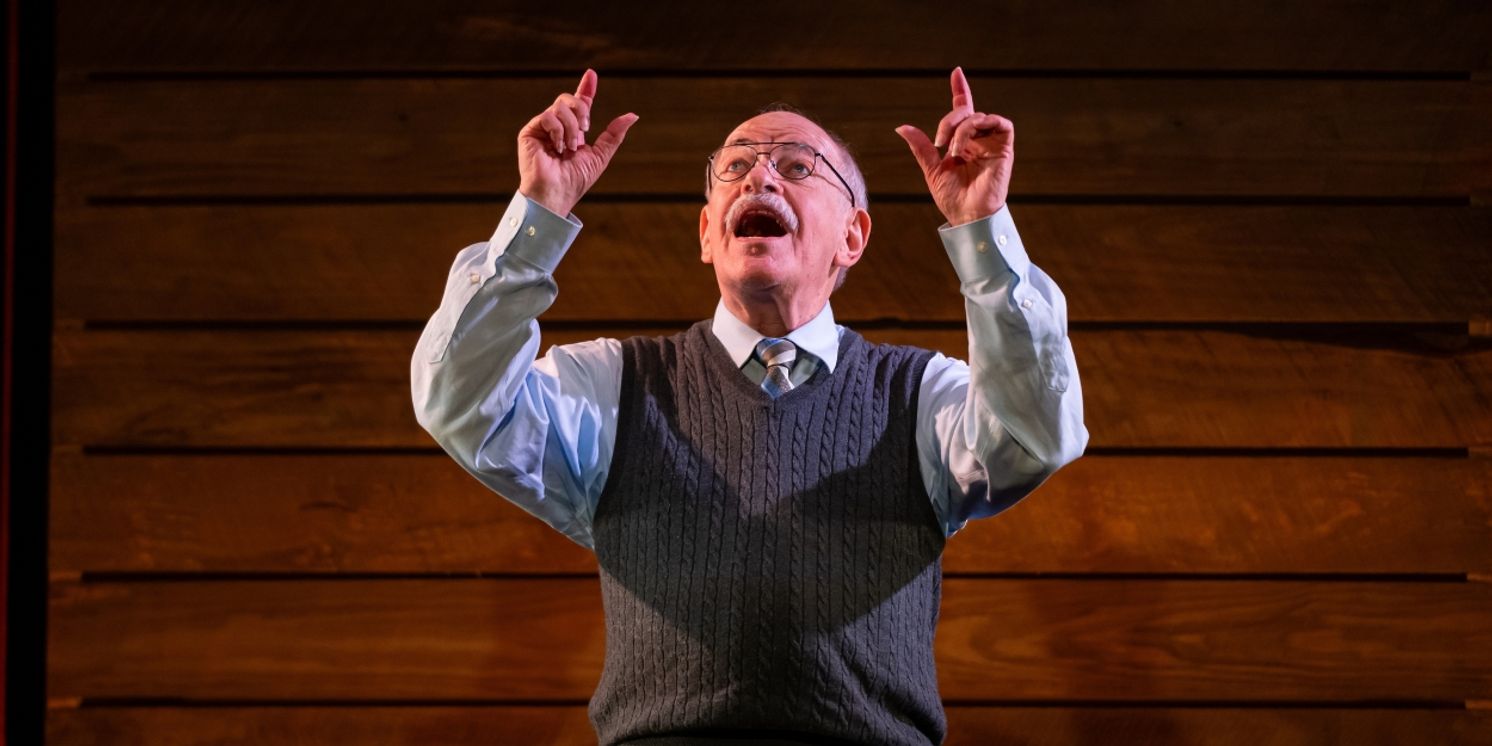Review: CATF's Production of THE HAPPIEST MAN ON EARTH a Brilliant Tale of a Remarkable Life
Runs through July 28th.

There is nothing in the world like a compelling, original story, well told. And when the story is true, darkly, and brilliantly real, it becomes absolutely indispensable.
Playwright Mark St. Germain has plumbed the depths of the Holocaust to create a deeply moving one-man show, The Happiest Man on Earth. Based on the memoirs of Eddie Jaku, who survived the horrors of Auschwitz to marry, become a father, and start a new life in Australia, the play tries to answer the basic question: how can a person, who has seen the absolute worst humanity has to offer, find any peace and joy in life? The answers aren’t simple, but Jaku’s memoir (the basis for St. Germain’s play) helps us to understand them.
[If you’d like to meet Jaku himself, there is also a TEDx Sydney talk online, it’s well worth checking out.]
Kenneth Tigar establishes Jaku as a warm, welcoming presence from the beginning; clad in an tweed jacket, cardigan and tie (Johanna Pan’s costume is spot-on), he engages informally with the audience, walking among the crowd before he steps up onto the stage. The psychological burden of ‘living to tell the tale’ is evident from the beginning; Jaku has been invited to speak at a local synagogue about his experiences, and Tigar’s Jaku is clearly reluctant at first. The prospect of speaking in public about it all petrifies him, and our evening is spent watching, spellbound, as he collects his thoughts, his memories, and begins to recount the many twists and turns of his story.
The journey Tigar’s Jaku takes us on is harrowing—and necessary, for a new generation that has yet to fully understand the depth and depravity of the Nazi’s “Final Solution.” Waking up one day to find your friends and classmates suddenly turn against you; then being forced by your family to “pass” as a Gentile and enroll in a nearby school—worst of all, being forced to live apart from your family just to survive—Jaku’s story is one of an incredible, insurmountable will to carry on, even as the authorities toy with him, assault him, starve him, and attempt to freeze him to death. His struggles to return to something like a normal life afterwards are real, but there is an epiphany, a moment, when the pain and anger and sorrow give way to pure joy.
James Noone’s scenic design features wooden planks, spaced a fraction of an inch apart—evocative of the cattle cars Jaku and millions of others were forced to ride in on the way to the camps. Harold F. Burgess II’s lighting and Brandan Aanes’ sound designs, meanwhile, punctuate each episode, heightening the suspense at every moment.
Jaku himself lived to the age of 101—and as he himself said, he considered himself the happiest man in the world. Kenneth Tigar, under the tight direction of Ron Lagomarsino, brings Eddie Jaku to live and honors the memory of one of the most remarkable human beings you’ll ever see.
Production Photo: Kenneth Tigar in "The Happiest Man on Earth" by Mark St. Germain, photography by Seth Freeman.
Running Time: 90 minutes with no Intermission.
The Happiest Man on Earth runs as a part of the Contemporary American Theatre Festival, through July 28 in the Shepherdstown Opera House, 131 W. German Street, in Shepherdstown, West Virginia.
For tickets visit https://catf.org/buy-tickets/. You can also email the box office at boxoffice@catf.org or call them at 681-240-2283.
Reader Reviews
Videos

